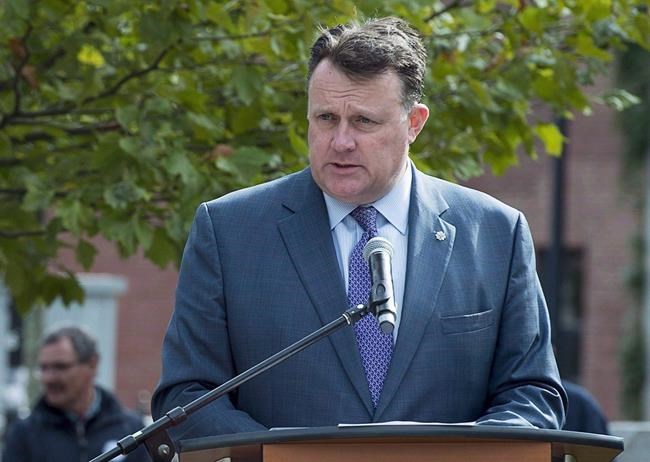HALIFAX — Cities and towns of all sizes in Atlantic Canada are calling out for financial help to maintain basic and essential services as they feel the economic squeeze of battling COVID-19.
Halifax Mayor Mike Savage said cities such as his are feeling the pinch across the country, facing shortfalls in cash for services such as police, fire and transit.
Days after the Halifax Regional Municipality (HRM) laid off 1,500 casual, temporary and seasonal employees, Savage revealed he had taken a voluntary 20 per cent cut in his net pay until at least July, in what he called a "small gesture" to do his part.
"This is something I decided toward the end of March," said Savage. "I knew there was hardship coming and I felt I should take my own small step to share in that."
However, Savage was careful to downplay his move, saying it's not expected of city councillors who make roughly half of what he does.
Savage said two measures that would provide significant help include a large increase to the so-called gas tax — a federal fund for municipalities that was doubled last year for infrastructure use — and more access to lower-interest provincial loans.
Without the help to bolster daily operations, Savage said there would be a knock-on effect on future municipal budgets.
"The problem is compounded by the fact, particularly on the commercial side, that our tax assessment base next year will be down because it's based on the occupancy of buildings this year," he said.
When asked about Savage's suggestions during his daily briefing on Friday, Nova Scotia Premier Stephen McNeil said the gas tax proposal was among a number of options being discussed with municipalities.
"There will be an ask coming in to me — recommendations — and we will look at them all," McNeil said.
Yarmouth Mayor Pam Mood, who is also president of the 49-member Nova Scotia Federation of Municipalities, said she expects there will be something on the table within the next week or so.
"We want something to roll out that will work for all municipalities regardless of size," said Mood.
She said the overall impact of the virus is relative, but no less daunting, for smaller towns and cities across the province.
"In the Town of Yarmouth, for example, we are losing in the tens of thousands of dollars every month with regard to parking and transit fees," she said.
New Brunswick Premier Blaine Higgs said a call was conducted Friday with 114 mayors and members of municipal associations and he told them his government is working on the issue.
"We are reviewing a number of potential plans and strategies right now. We will have more information in the coming weeks."
Higgs noted that according to the province's Municipal Financing Act, municipalities aren't allowed to run a deficit.
"In this situation that likely will change," said Higgs. "We've seen other provinces do that and we discussed that a bit this morning."
Earlier this week, the city of Fredericton postponed two major infrastructure projects scheduled for the spring, replacing them with smaller projects it said would have less impact on business and residents.
The city is also reviewing its capital project construction plan and says it has already identified $4-million in additional projects that could be deferred in order to bridge revenue shortfalls and additional costs caused by the COVID-19.
In Moncton, N.B., a report issued earlier this month gave two projections for the effect of the virus on that city's bottom line.
It said if restrictions lasted until May 31, the city would register a projected deficit of $1.7 million, mainly due to a loss in source revenue collected from fees for such things as transit, events at the Moncton Coliseum, the city zoo, parking and permits. The city collects about $16 million in source revenue.
The deficit figure jumps to $3.5 million under restrictions lasting until Aug. 31.
- With files from Kevin Bissett in Fredericton and Michael MacDonald in Halifax
This report by The Canadian Press was first published April 17, 2020
Keith Doucette, The Canadian Press



